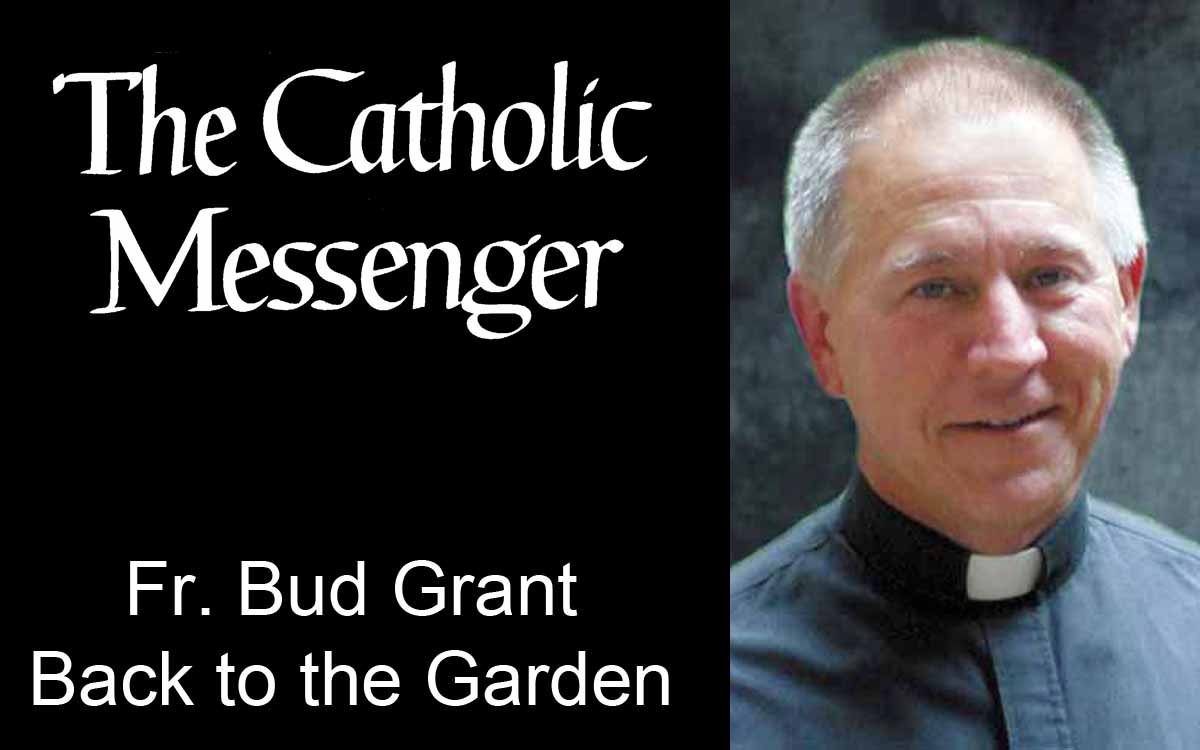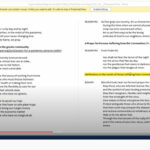By Fr. Bud Grant
For some, hope is a sort of optimism: through right reasoning, solutions will be found. Christian hope is closer to trust: our relationships can be restored by surrendering such things as, well, solutions.
 Harvard psychologist Steven Pinker represents the former. He is optimistic about the future of the planet, while distractingly caustic in his characterization of mainstream “greenism,” such as Pope Francis’ Laudato Si, which he describes as “apocalyptic” and “laced with misanthropy.” “Greenism,” Pinker says, treats humans as “a vile race of despoilers.”
Harvard psychologist Steven Pinker represents the former. He is optimistic about the future of the planet, while distractingly caustic in his characterization of mainstream “greenism,” such as Pope Francis’ Laudato Si, which he describes as “apocalyptic” and “laced with misanthropy.” “Greenism,” Pinker says, treats humans as “a vile race of despoilers.”
For Pinker, “greenism” is a naive “morality play in which we renounce technology and return to an ascetic harmony with nature.” He should know better. His “eco-pragmatism” puts faith in practical solutions which, he assures, happen with Darwinian-like “spontaneity.” His is a modest hope: some pollution is inevitable, but industrialization and technology can re-balance human well-being with environmental health.
We cannot afford a “spiritual” concern for “the fate of the black rhinoceros and the well-being of our decedents in 2525.” These “are significant moral concerns but worrying about them now is something of a luxury.”
Jeff Ball, scholar-in-residence at Stanford University’s Center for Energy Policy and Finance and an environmental journalist, is also optimistic. “Follow the money,” he told me recently. While the federal government is certainly negligent in guarding the future, multinational companies, including Shell Oil, no less, are already adjusting for and investing in a post-oil world. “No,” he admits, they have not yet fully committed, but he believes that the tide is turning toward a better, greener, business world. Ball says that these companies are unshackled from unnecessary ethical arguments and are “fairly pragmatic”: green is good business, so it will happen.
Chad Graeve is different. An ecologist working in the Loess Hills, Chad recently enthralled my Environmental Ethics class with his hope for the planet. It is based on his observations of and work with the ecosystem itself. “Resilience” is his word for how nature responds to human actions.
“Mistakes can be made,” he told my students, but “the system can bounce back.” He sees this among the native species and, he adds, “humans are not the problem.” It is just that “our culture has had a warped relationship with the rest of Creation.” The relevant power is not economic, technological or hierarchical (humans over everything else) but rather “inter-relationships woven together.” This is the force that holds all of creation together, including us. Call it God. “We are charged by our Maker” he concludes, “not to save Creation, but to save our relationship with Creation.”
Ball and Pinker are hopeful in that very secular sense of avoiding misadventure or attaining some sought-after solution. Based on somewhat selective data, they are right in their implicit presumption that the greatest ecological crisis we face is the human failure to use our noggins and thus, we can do better. I, too, hope that businesses and technologies can have measurable impact on our ecological problems. We all want practical results for the Common Good. But I find their pragmatic approach to be so emotionally shallow, so spiritually embalmed, as if the best we are capable of is “get ‘er done.”
Chad’s hope is deeper, richer and more vibrant with the celebration of our deepest humanity: no less rooted in empirical evidence, it is unabashedly spiritual. It is a Christian hope, which accepts that Christ does not promise that we can avoid crucifixion, but that there is resurrection on the other side. In terms I probably use way too often in this column, it means that to save a suffering Creation, we must yoke to ourselves the crossbeam of that suffering.
This is hope, which means a confident, trusting, relationship with the Crucified-Risen Christ. Far from misanthropic, dystopic, apocalyptic or dismissible over-thinking, it is, on the contrary, salvific: the best expression of our — Christ’s own — humanity.
(Father Bud Grant is a professor of theology at St. Ambrose University in Davenport.)











